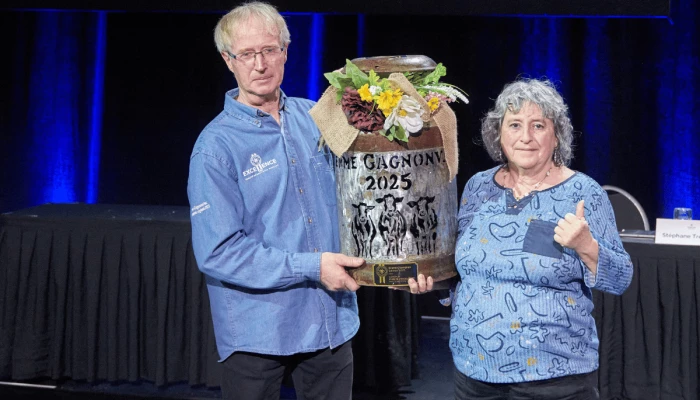Actualité
Actualité
Contenu en vedette
De grands enjeux internationaux, nationaux et locaux affectent l'agriculture d'ici, et votre ferme. Voyons comment les nouvelles agricoles vous concernent, vous et votre coopérative.
Le gouvernement du Québec annonce l’implantation d’un projet pilote visant à prolonger les heures d’ouverture de certains commerces.
Quatre ans après le début de l’agression russe en Ukraine (24 février 2022), Socodevi demeure en poste dans ce pays où elle mène des projets depuis 2008.
Le président Donald Trump a fait des tarifs sa stratégie commerciale pour réduire le déficit des États-Unis. La Cour suprême juge que c’est illégal.
Sous l’administration Trump 2.0, les agriculteurs américains vont engranger des aides directes records de 44 milliards $ US en 2026
La Ferme Gagnonval (Avantis Coopérative) et la Ferme Janibert d’Ange-Gardien (Agiska Coopérative) sont couronnées Grands Champions 2025.











